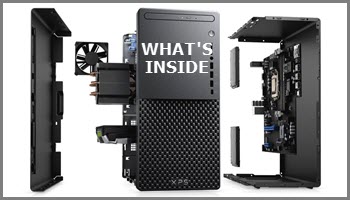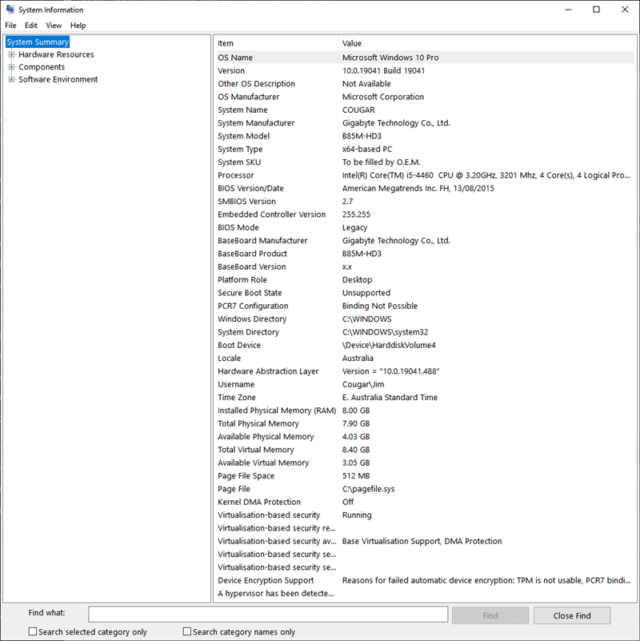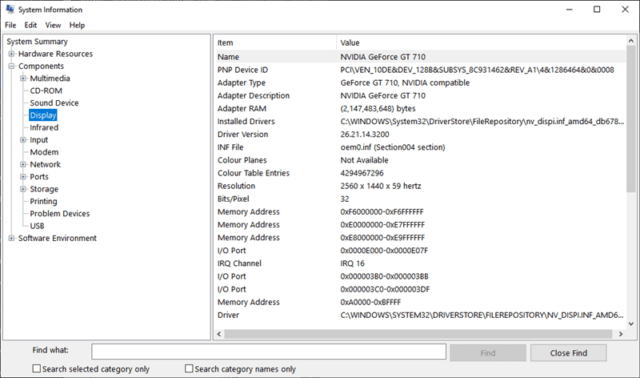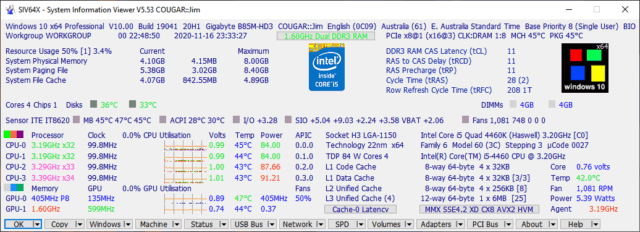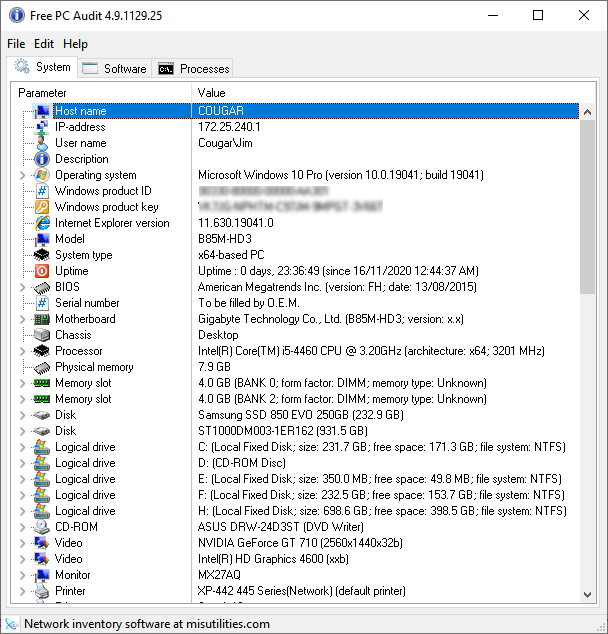System information tools help users identify and record details of hardware specs, the operating system, and the software environment. These types of tools can range from basic to comprehensive and, while not needed all that often, do come in handy on occasions, particularly when seeking assistance via support/help forums. Plus, of course, if one of your hardware components fails and you are seeking a compatible replacement.
Did you know there is a very good system information tool built into Windows 10? It is not the most comprehensive of these types of tools but it does provide a wealth of information, more than adequate for most users.
Access System Information In Windows 10
To access System Information in Windows 10:
- Open a Run dialogue box: press the Windows + R keys
- Type in msinfo32 and hit Enter
- The System Information window will then open to a system summary
In the main panel, you can view the computer specs, including details of the operating system, processor, BIOS mode (UEFI or legacy), BIOS version, installed memory, motherboard brand and model, and more.
Expanding categories listed in the left-hand panel will provide full details for hardware resources, components, and software environment. If you want to find details about your GPU, for example, expand Components and click Display:
Windows 10’s System Information tool also allows you to create a hardware specs report as a text file that you might need for help/support:
- Click File in the menu across the top and then, from the drop-down menu, click Export
- Select the specifications to export– TIP: Selecting System Summary will export everything
- Select a location to save the file
- Type in an appropriate name– e.g. Windows 10 PC Specs
- Click the Save button
SIV (System Information Viewer)
SIV is a comprehensive free and portable system information tool. Download (64-bit version) consists of a 13.6 MB ZIP folder extracting to 39.7 MB. Double-click the extracted executable to run and SIV opens to a system summary with many options available via drop-down menus accessed across the bottom of the interface– (click image to enlarge):
Each of the drop-down menus accessible across the bottom of the interface opens with many various options, far too many to enumerate but here is a small sample:
As you can see, SIV is quite complex and I suggest it is more suited for advanced users. Frankly, I find the interface overly busy and the sheer volume of information a tad overwhelming. SIV also supports creating reports.
Free PC Audit
In terms of comprehensive information, Free PC Audit sits somewhere between Windows 10’s native System Information tool and SIV and is my favorite of the free and portable third-party tools. Free PC Audit’s download consists of a 3.13 MB standalone executable. Simply double-click the downloaded executable to run. Unlike SIV, Free PC Audit is very simple and easy to understand with just three categories available via tabs across the top of the interface:
- System – comprehensive hardware specs
- Software – lists all installed software
- Processes – lists all currently active processes
Despite its simplicity, Free PC Audit provides more than enough information to satisfy most users’ requirements. Specifications/reports can also be saved as a text file.
Special Mentions
SIW (System Information for Windows) used to be my favorite of these third-party tools but, alas, it has not been available for free for quite some time. I can’t say as I blame the developer for wanting to monetize his efforts– SIW is a top-notch system information tool.
Belarc Advisor has been around for a long time and is undoubtedly a very good system information tool. However, it is only available in an installable version and my preference is always for portable, especially for something which is only required occasionally.
BOTTOM LINE:
Windows 10’s native System Information tool would be adequate for most users and, of course, is already included as part of the operating system. Free PC Audit is well worth a look and eminently suitable for all users. I would suggest that, because of its complexity, SIV is not suitable for less experienced users. However, advanced users will find it extraordinarily comprehensive.
FURTHER READING:
- Best Free Uninstallers – 2020
- 50+ Best Free Portable Applications – 2020
- The Best Freeware Download Sites
- Best Free Clipboard Managers
- Best Free Password Manager
- Best Free Portable Screen Capture Tool
- Best Free PDF Reader
—
